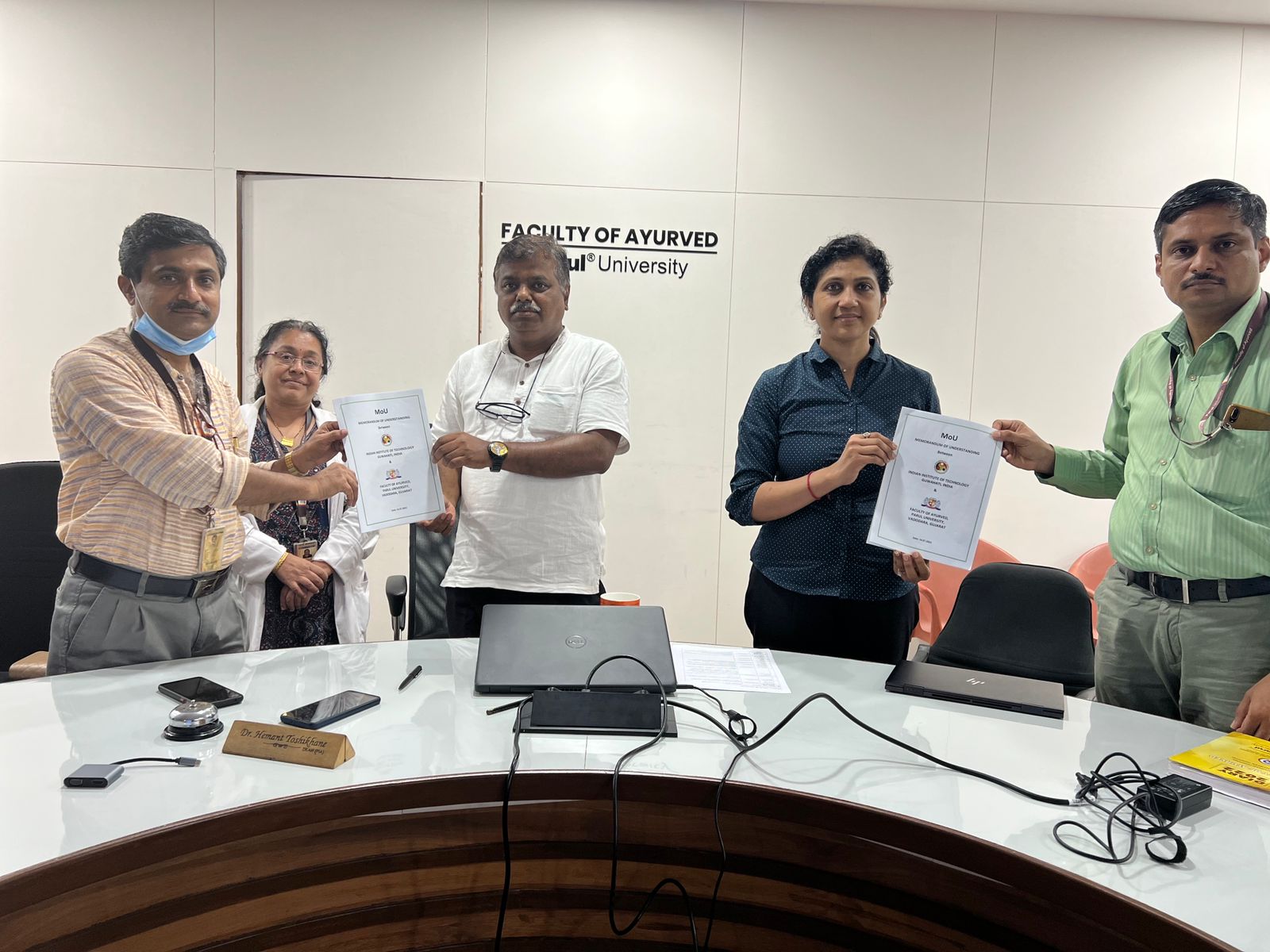The Parul University’s Faculty of Ayurveda recently signed a Memorandum of Understanding (MoU) with the Indian Institute of Technology (IIT) Guwahati to capitalize on the advancing technologies by leveraging IoT, IT, and biotechnology instrumentation to further research and innovation in the field of natural medicine. This Medical Director, Parul University, Dr. Komal Patel, and IIT Guwahati Director, Dr. TG Sitharam-led MoU, will go a long way in advancing the scope of research for both institutions.
IIT Guwahati is the sixth Indian Institute of Technology established by the Government of India and is officially recognized as the Institute of National Importance. Since the commencement of its education programs in 1995, the institute has been known for its contribution to the scope of research through advanced theoretical knowledge and leading innovative solutions in various real-time problem areas. Research has taken academics one step closer to the industry and this recently signed MoU is one more step towards that aim. Under the memorandum of understanding, IIT Guwahati and the Faculty of Ayurveda, Parul University will be cooperating in the fields of academics and R&D and will be working towards improving or initiating undergraduate, post-graduation, and doctoral programs at the Faculty of Ayurveda, Parul University.
Other areas of cooperation included a summer internship at IITG for PU students, visiting faculty and visiting students, and short-term training programs. In addition, IIT Guwahati and the Faculty of Ayurveda, Parul University will be working towards the development of new avenues of R&D in healthcare. Researchers from the Faculty of Ayurveda have been extensively utilizing technology to open up new avenues of research. They have developed apps for promoting Ayurveda education and facilitating diagnosis of patients, instruments that can enhance patient management, and a wide range of ayurvedic medicines based on advanced technologies such as nanoparticles and transdermal patches. The faculty has also put tremendous efforts into developing instruments that have the potential to treat knee arthritis and eye diseases, high-end instruments for ayurvedic cautery treatment, called Agnikarma, and also repurposing medicines into newer, palatable, and fast-acting dosage forms.





